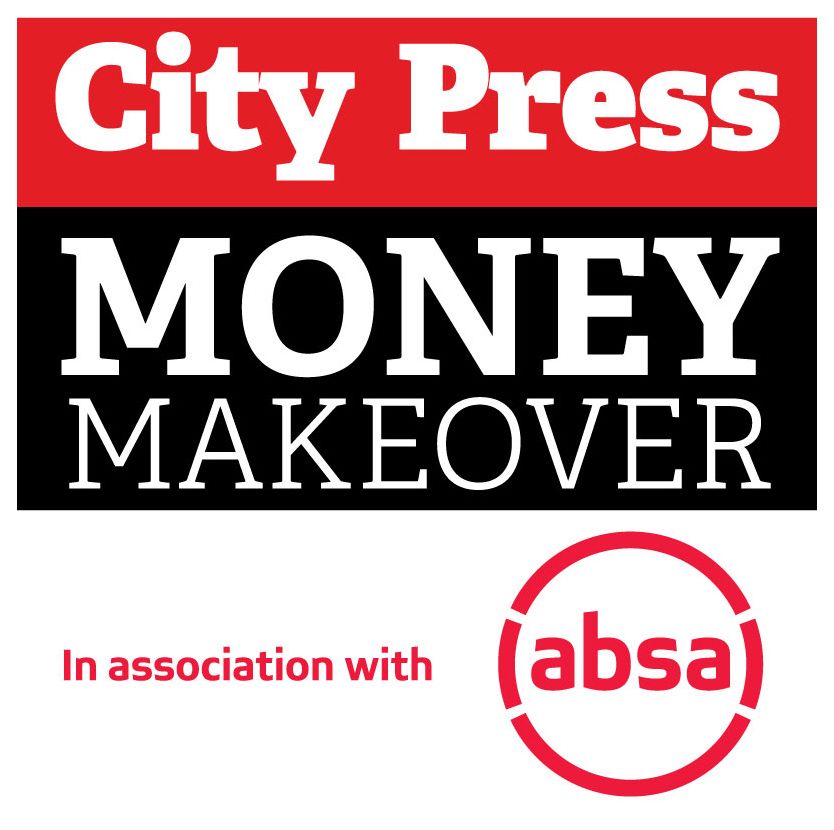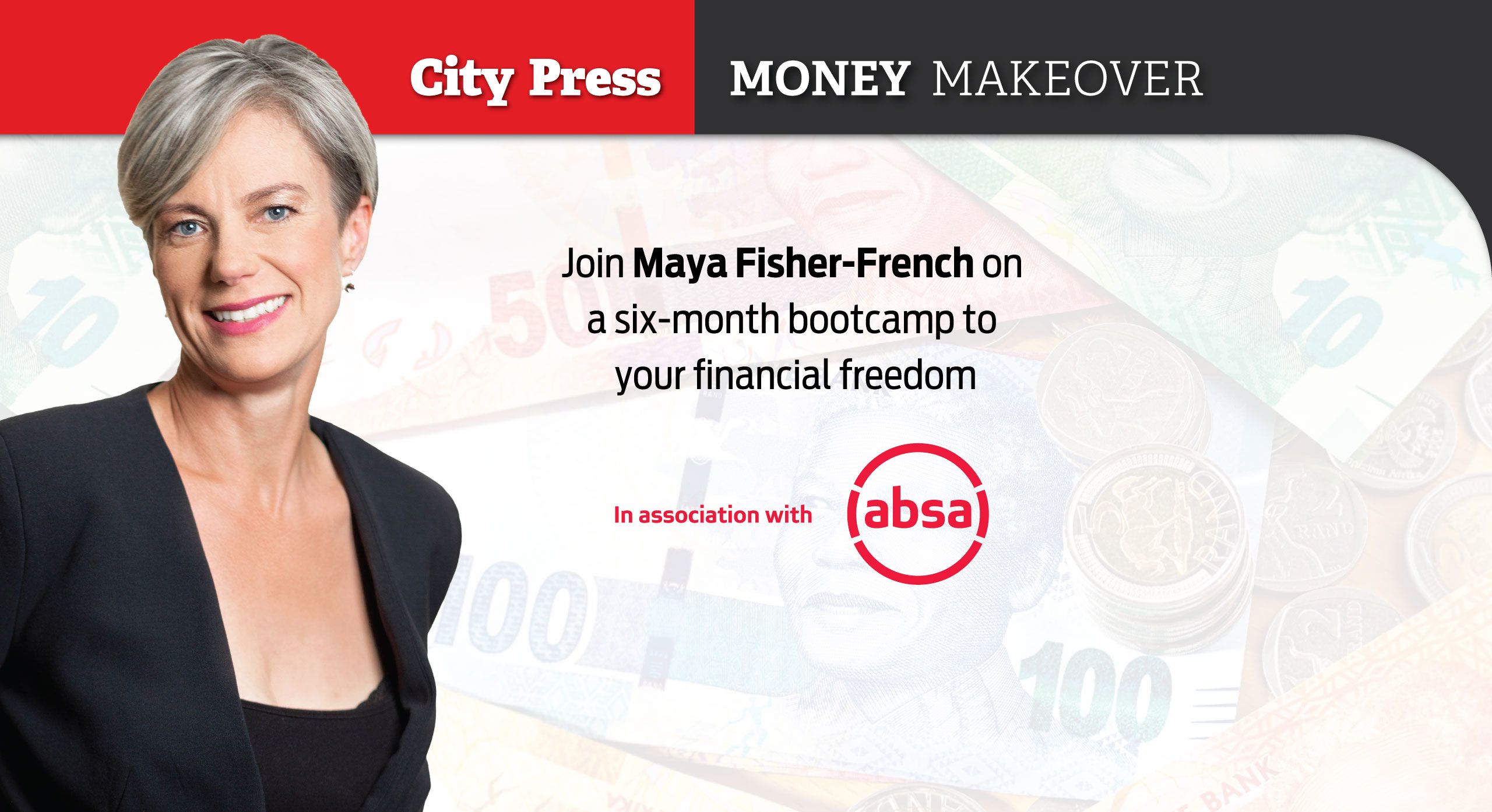
previous money makeover journeys
Financial Freedom: Settling wedding debt and building a family legacy
The fourth annual Absa/Money Makeover begins in May with six new participants. Last year all six candidates met – and exceeded – their money goals. Here’s Nono’s story.
By using “lazy money” Nono paid off her wedding loan in less than six months and by the end of the year she had made her last car payment.
Nono works as a TV producer and married Vusi two years ago. She has a teenage daughter who lives with her parents in Kwa-Zulu Natal and last year the couple had their first child together, a beautiful baby girl.
Although Nono had never been one to take on debt, her wedding in December 2019 wiped out her savings and she had taken on a revolving loan to pay for those unexpected extras. “I had just spent all my savings on the wedding and after 12 years of working, I was starting from scratch. I had debt to settle and no savings to speak of.”
She worked with Absa financial adviser Steve Williamson who created a plan for her to target her debts. This meant that the “lazy” money that she was spending unconsciously went immediately to settle her debt. Nono exceeded all her timelines in paying off her credit card and revolving loan within six months.
“Surprisingly, the little leftover money I had previously regarded as only spending money made the most difference in paying off debt.”
Just by packing lunch each day rather than buying at work, she was able to increase her mortgage repayment by R500 a month.
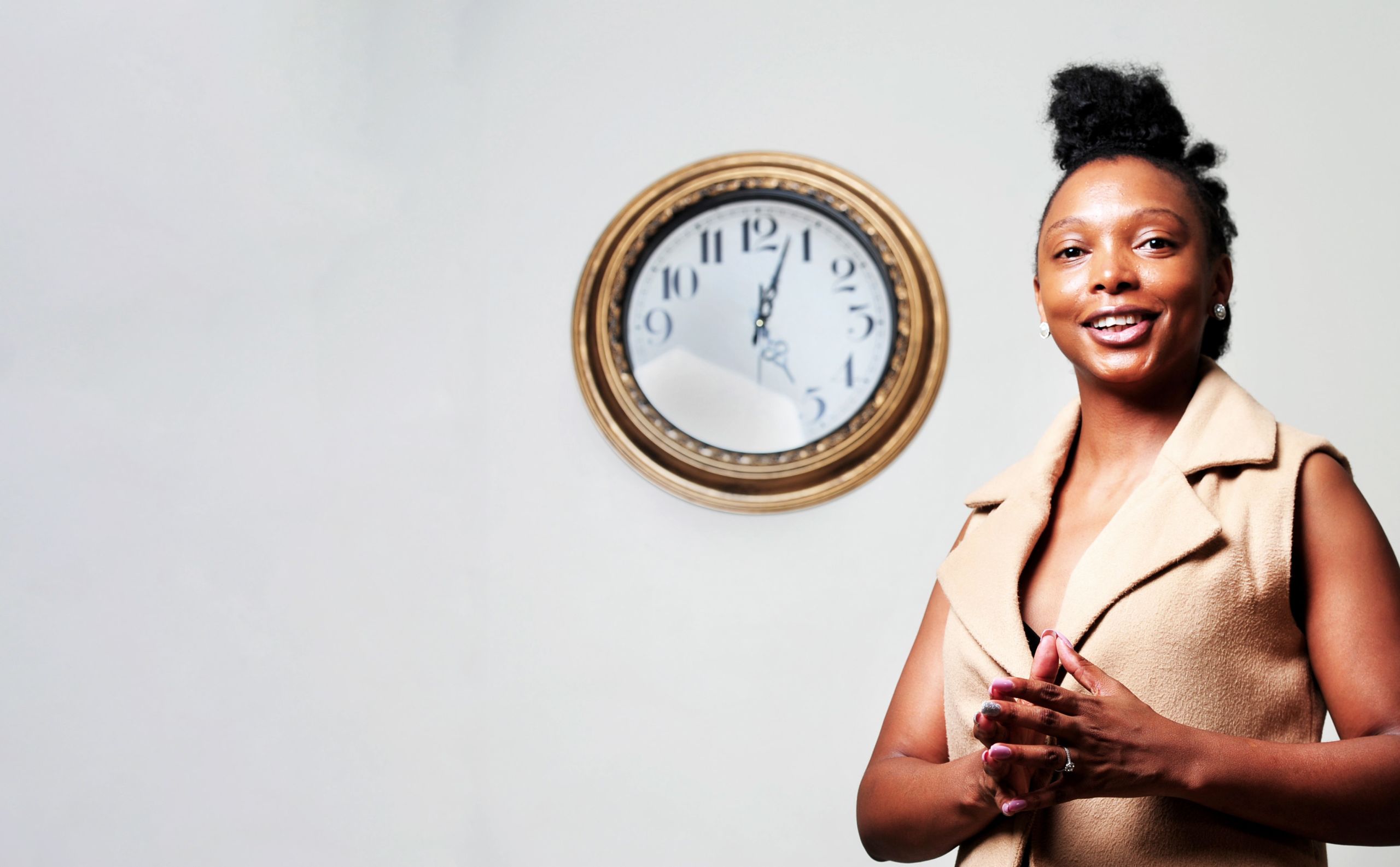

NAPPY FUND AND A GRATITUDE JAR
Apart from settling debt, Nono created many clever savings strategies including opening a “nappy fund” for the new baby, a family stokvel and a gratitude jar.
“With the baby on the way, my husband and I started our own “baby fund”. He opened a savings account where we saved for baby’s nappies and all those other expenses that come with a baby. Instead of baby shower gifts we asked our loved ones to contribute towards the baby fund so we can save the money for her,” explains Nono.
Nono also brought her siblings and their partners on her money journey by starting a stokvel to go towards groceries for December and January. “The main objective of this was for us to learn the habit of saving, the importance of holding each other accountable and setting an example for younger siblings.”
The gratitude jar was the couple’s way of paying it forward.
“We put money in a jar weekly, and at the end of the year we use that money to buy something thoughtful for people who have impacted our lives that year,” says Nono.
Now that Nono has settled her debts she has started on her goal of building a legacy for her daughters. The couple are adding extra repayments to the apartment Nono kept after the couple married and which she currently rents out. Nono is also starting to save for a deposit so that she can buy another rental property.
“The vision is for us is to have more properties so that generations to come after us have options we didn’t have,” says Nono.
This achievement saw her as a runner-up in the 2020 Absa/City Press Money Makeover Competition.
Financial freedom: How to build a property portfolio
Many would-be property investors stumble into investment property without having a proper plan or structure in place. This usually results in the properties becoming a financial liability both in terms of tax consequences and excessive debt.
Last year’s Money Makeover candidate Colen joined the challenge as he was very stretched on his property debt. He had built up a significant property portfolio made up of various properties including flat rentals. However, Absa financial adviser, Jean-Pierre van der Merwe, immediately identified that Colen had no will and the way his property portfolio was structured it would leave his family with a significant tax bill. Colen also worked with Absa property expert Miguel Martins who advised Colen on creating a proper plan to grow his property portfolio. Martins identified properties that were not generating sufficient returns and advised around restructuring the portfolio.
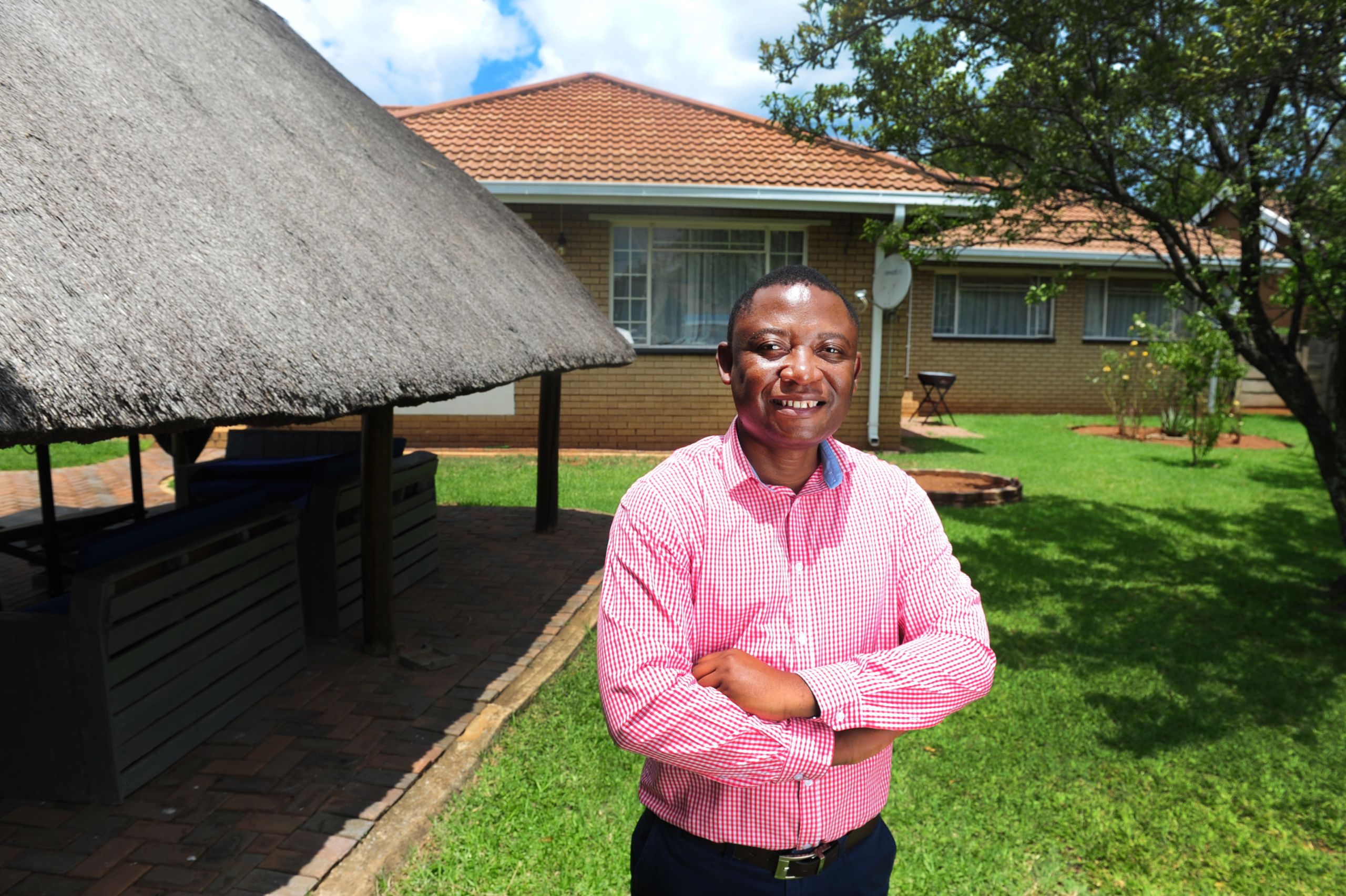
Colen was not using his money effectively to pay off his property debt. “Somehow I didn’t care or wasn’t bothered by my debt as long as I was able to pay the installments each month.” By using money sitting idly in his transaction account, Colen paid off R50 000 of the short-term debt he had incurred in buying the properties and improved his cashflow. Colen achieved this despite a salary cut and loss of income from one of his rental units due to the lockdown and pandemic.
He also discovered that there were many expenses he could have claimed from the taxman that he had spent on the properties. Colen also reduced his property expenses by R7 000 by installing pre-paid electricity meters.
Within six months Colen had reduced his debt, built up an emergency fund and a savings fund to prepare for his next property. He also implemented a full estate plan with a will and life cover so that his family would not be forced to sell the property to cover death duties.
See the start of Colen’s journey as a contestant below:
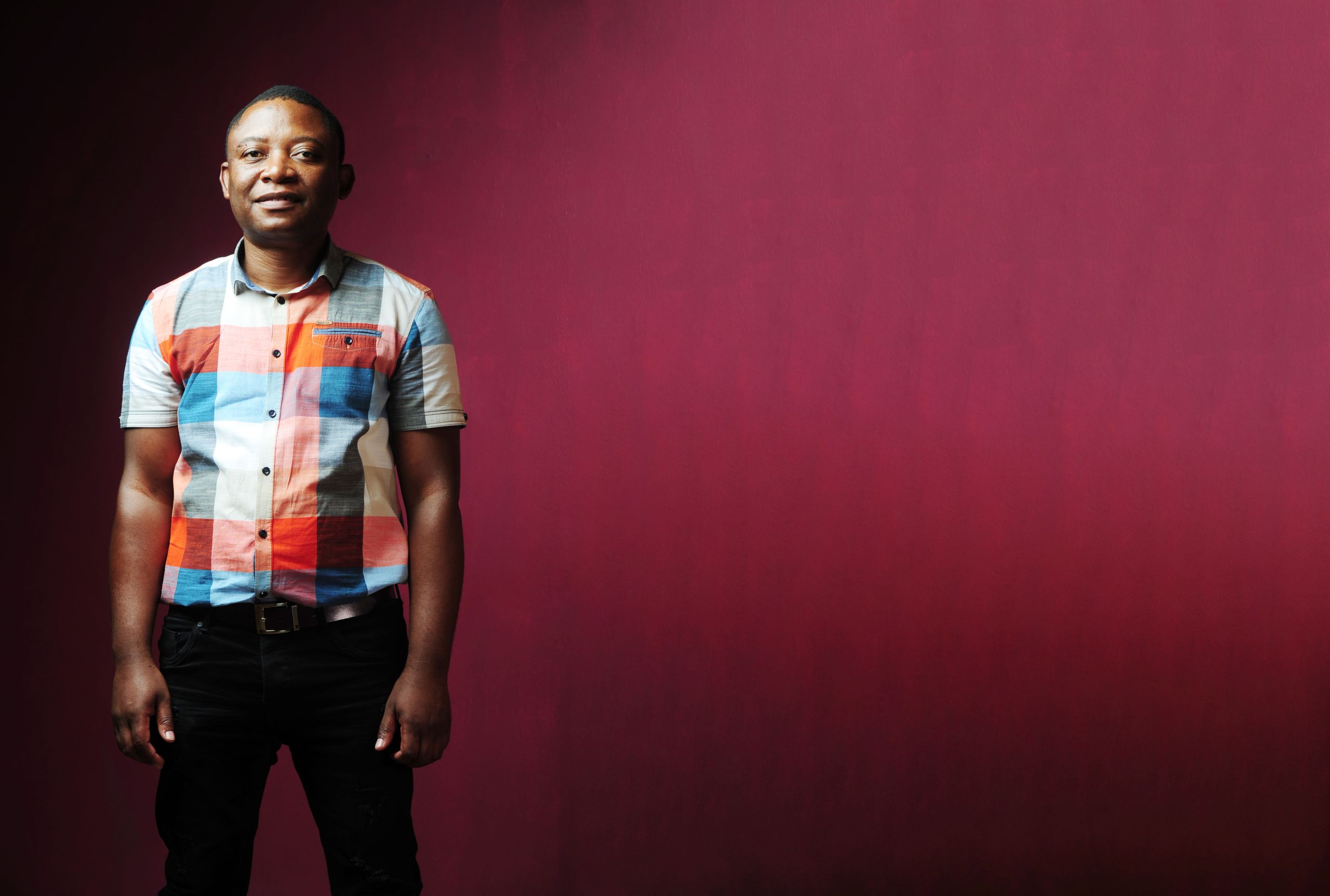
Journey 3 - Makeover your small business
Despite two months of work stoppage during lockdown, entrepreneur Bellah was still able to turn her construction business around in 2020 by putting the proper processes in place.
Being a successful entrepreneur is not just having a great business idea, it is about making sure you understand how your business runs, paying attention to cashflow and having proper accounting systems. A mistake so many entrepreneurs make it to treat their business funds as their personal money. If you treat yourself as an expense in the business and separate your personal finances from that of your business, you will have a better idea of whether the business is profitable.
One of the 2020 Absa/City Press Money Makeover candidates was Bellah, an entrepreneur running her own construction company in Pretoria. Despite having a significant turnover in 2019, when Bellah joined the Absa/City Press Money Makeover Challenge she had no idea whether her business was making a profit. While Bellah is never short of new ideas, the problem has always been the financial management of her businesses and her cash flow. Although she received large lump sum payments from projects, Bellah never seemed to have enough money to meet her living expenses. When she joined the Money Makeover Challenge, her business was sitting with a significant overdraft and her personal finances were relying heavily on debt.
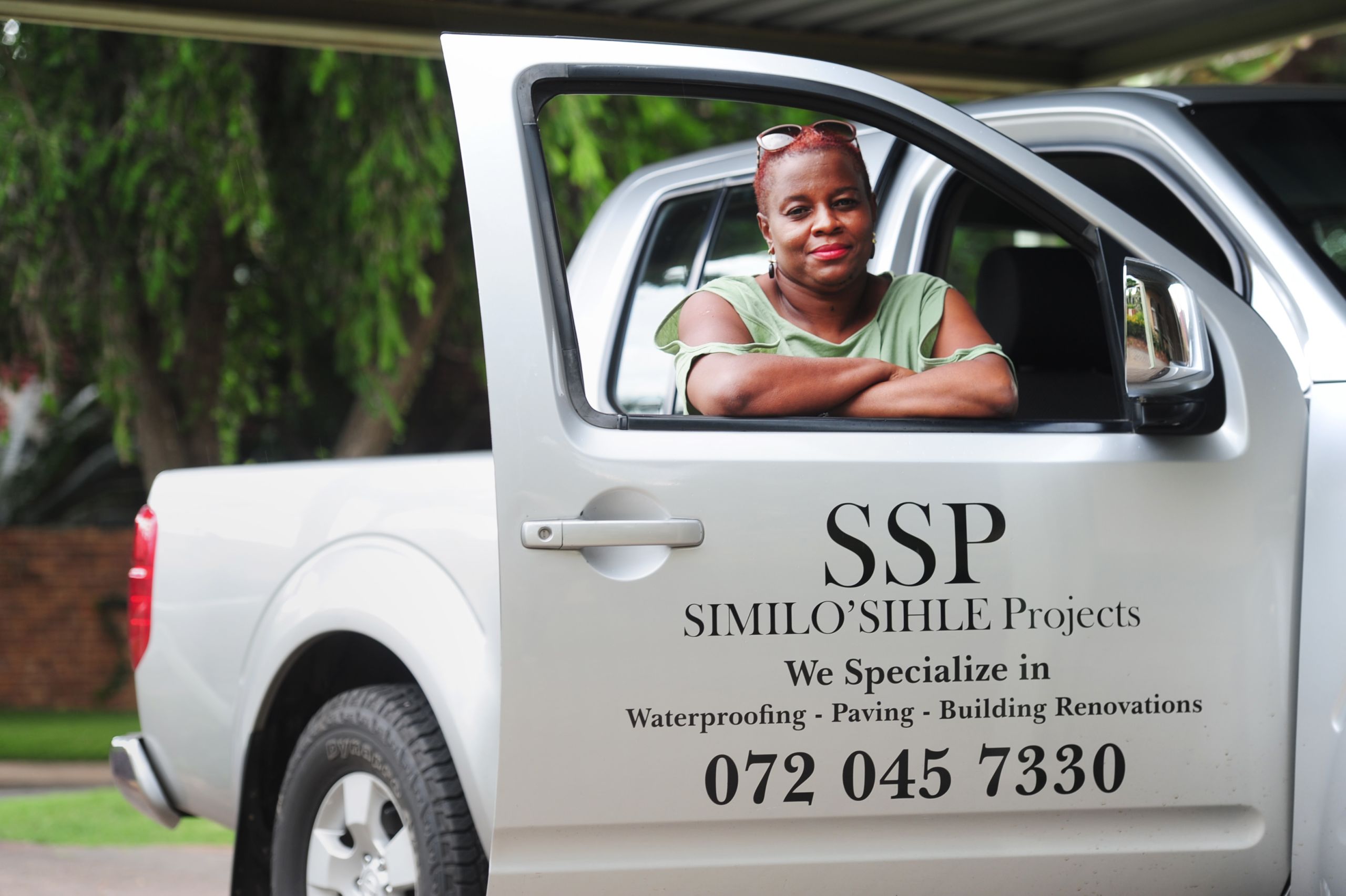
Bellah worked with Absa financial adviser Stacey Coulson who immediately recommended that Bellah start paying herself a regular salary from her business every month. She worked with Elton Govender, a senior enterprise development specialist at Absa, to help her understand her business.
Within six months Bellah had separated her personal and business finances and paid herself a monthly salary. She created and stuck to a budget which included paying off her personal loans. On the business side, Bellah kept an income statement on each project to fully understand her expenses and profits. She now employs her own team rather than contracting out to sub-contractors. This improved her margins considerably.
When she received lump sum payments from her projects, rather than going on her usual spending spree, she reinvested it straight into the business – paying off debts and building up capital to fund future projects. She started a Facebook page for her business and has completed three projects from these leads. Bellah made significant inroads into her debt and has started to diversify her client base.
Within just six months Bellah had paid off R175 000 of business and personal debt and built up a salary/emergency fund of R45 000.
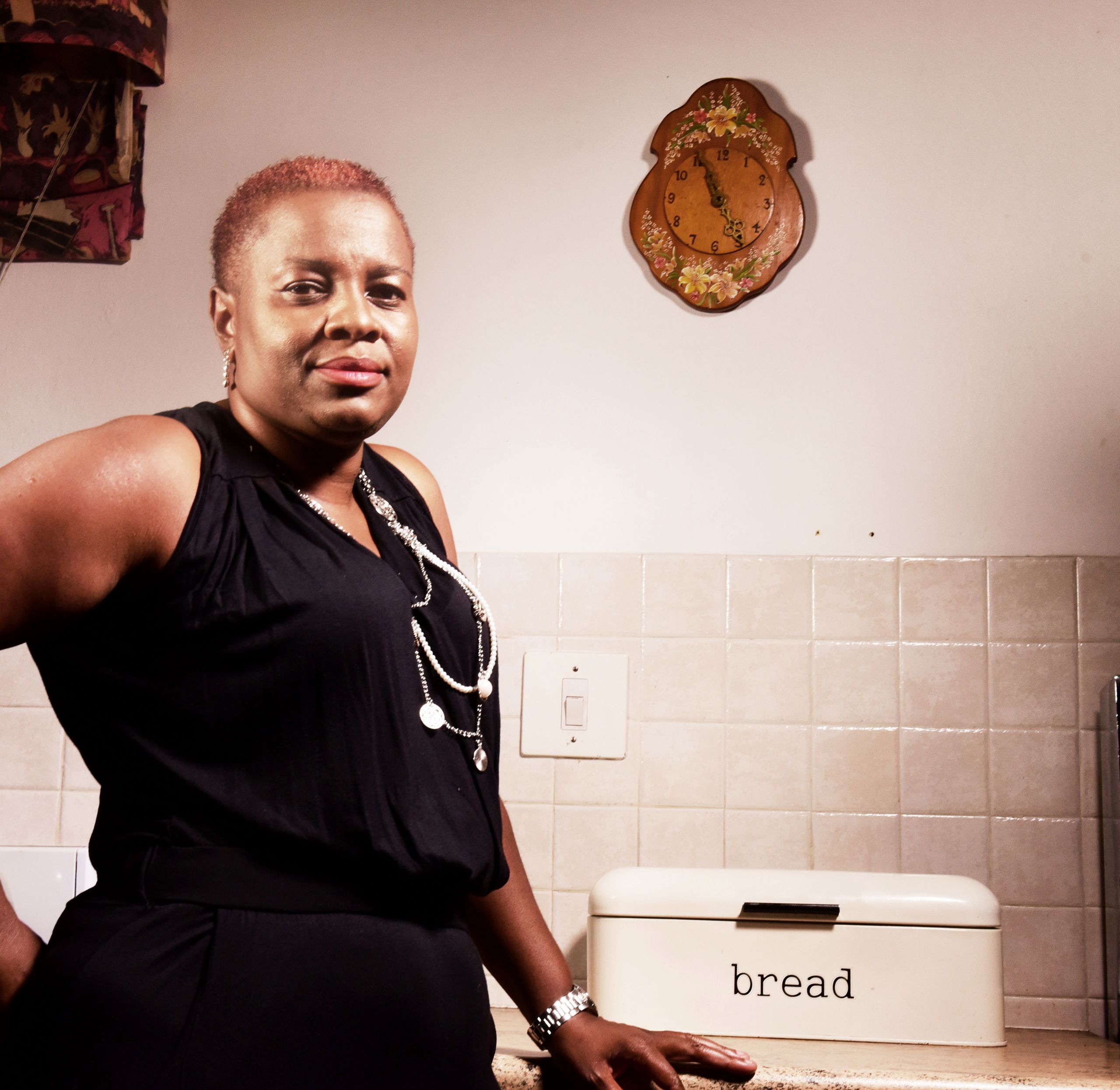
Within just six months Bellah had paid off R175 000 of business and personal debt and built up a salary/emergency fund of R45 000.
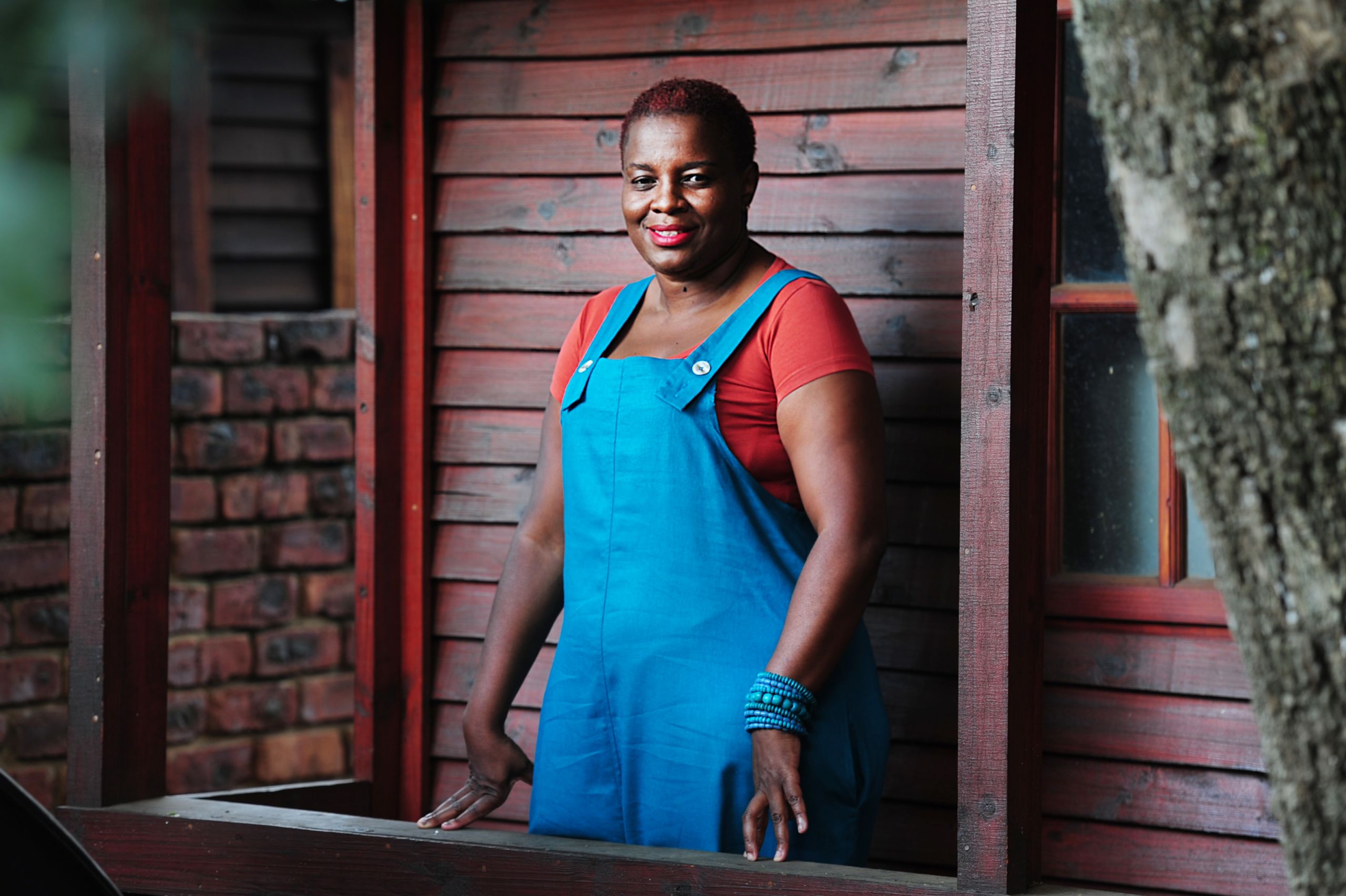
Journey 4: How a six-month money bootcamp changed lives forever
In May, the City Press/Absa Money Makeover Challenge enters its fifth year. During that time we have worked with 30 South Africans to reach financial freedom and achieve goals they never believed possible. The most rewarding part is that many of them have continued to build on those strong foundations changing their finances and lives forever. All this despite the challenges of 2020.
Winning the 2018 Money Makeover Challenge forever changed the future for former security guard Howard, who is now a property entrepreneur. Having built a successful room-to-let business over the last three years he took it to a new level despite the challenges of 2020.
“2020 was tough but we survived. We took advantage of low interest rates and we bought our third investment property. We also registered a company called Hindoga Properties PTY LTD.”
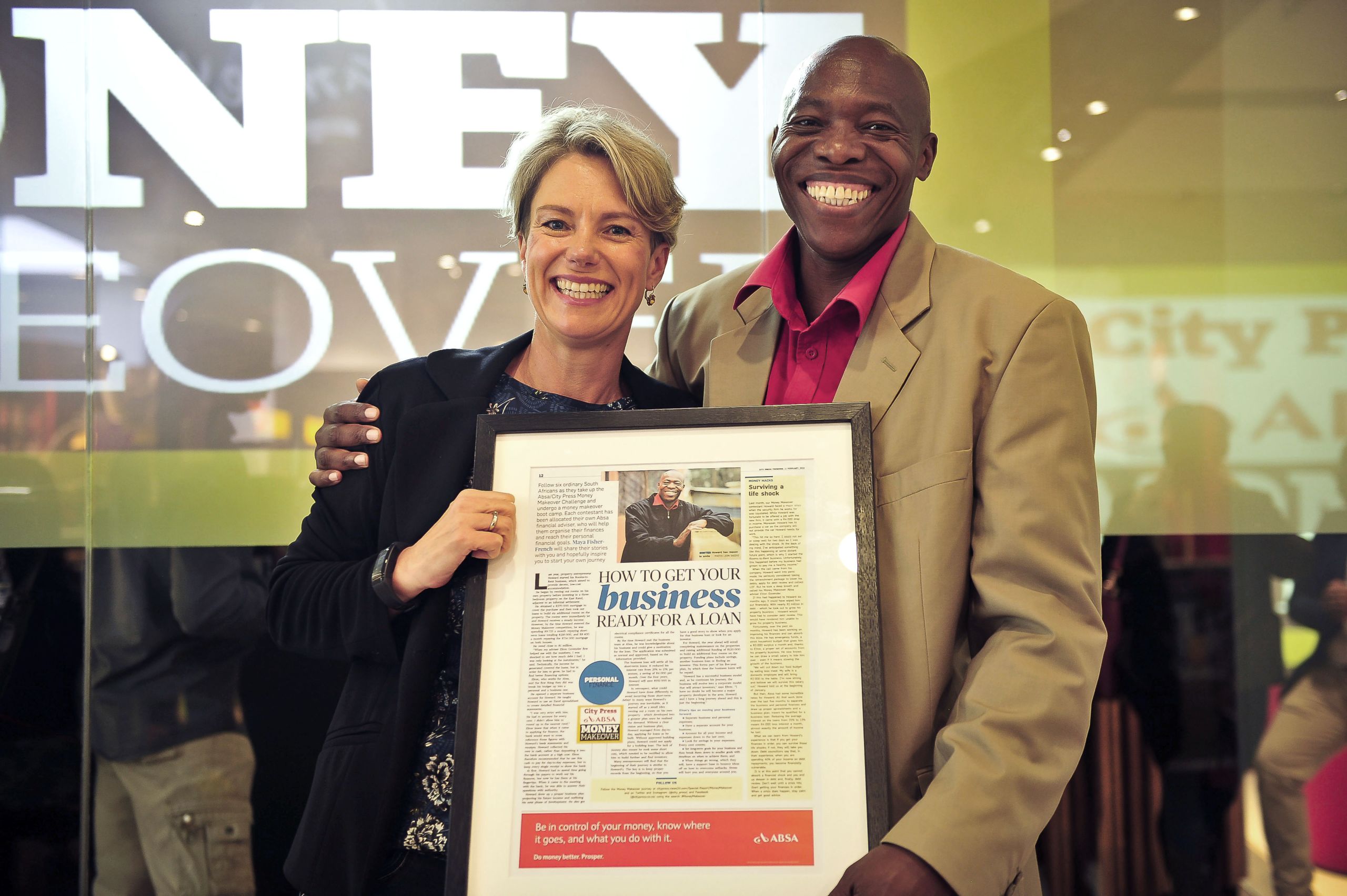
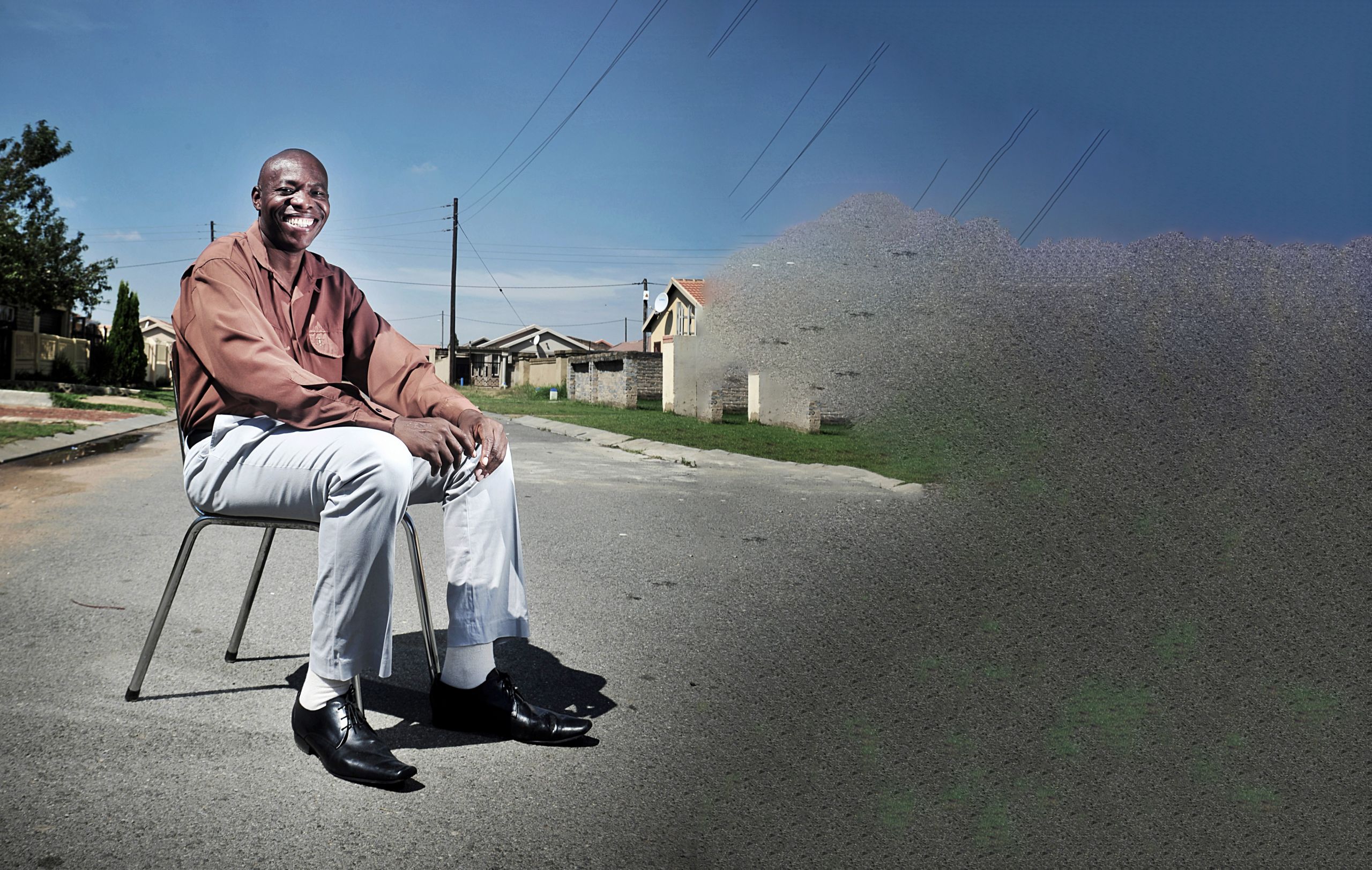
Our 2020 property entrepreneur Colen managed to navigate the stressful period during lockdown which impacted many of his tenants and his own income. He survived due to smart money moves. Without restructuring his finances, Colen’s property portfolio may have resulted in a financial crisis, instead he came out of 2020 stronger than ever.
“I have just finished revamping a property I acquired last year and I'm in the process of selling another property that was giving me a negative cash flow. Tenants are also coming in and I'm hoping for a great year in 2021. I'm still working according to the plan we derived with my advisor during the challenge.”
For bookkeeper Monique, a candidate in 2018, removing financial stress through debt consolidation and proper budgeting, gave her the energy to focus on her side business selling beauty products. This has allowed her to build the business into a significant income for the family, winning several awards including top salesperson for Sh’Zen in the Eastern Cape.
“The City Press/Absa Money Makeover took me from a place of feeling stuck and in a rut to a position of financial freedom. I was forced to look at my spending habits and found ways to improve how I was doing things. It also impacted how hubby and I managed our finances. Then it was his money and my money. Now it is our money. We are still sticking to our plan and have paid up all credit cards and personal loans and only have our home loan now. Our aim is to pay that off in the next five years. This means we would have reduced our 20-year bond to 15 years. I'll be eternally grateful to the Absa Money Makeover.”
Money Makeover winner in 2017, Izimangaliso has not only changed her attitude to her own personal finances but has also shared her lessons with other women.
“I have started a project where I organise networking events where I educate women about the importance of saving and about financial wellness. I also mentor young women who are starting out in the workplace and I emphasise the importance of a debt-free life and saving for what you need. I hope these lessons can reach as many people as possible and that together we can achieve a healthy financial status. Remember it is not how much you have but what you can do with the little that you have. It is never too late to start saving, start today!”
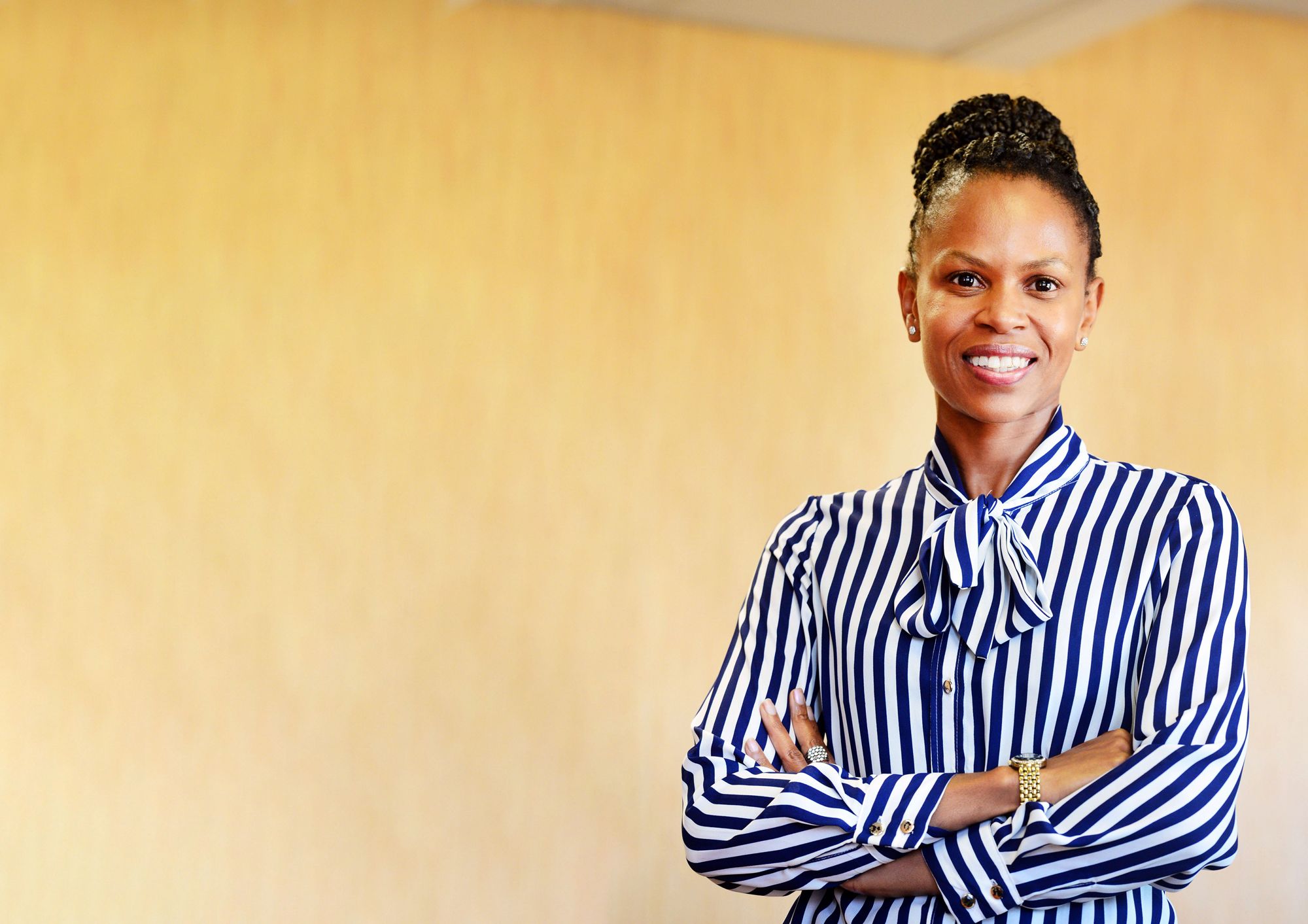
The Money Makeover bootcamp has not only left a lifelong change in money attitudes for the candidates, but also for their families.
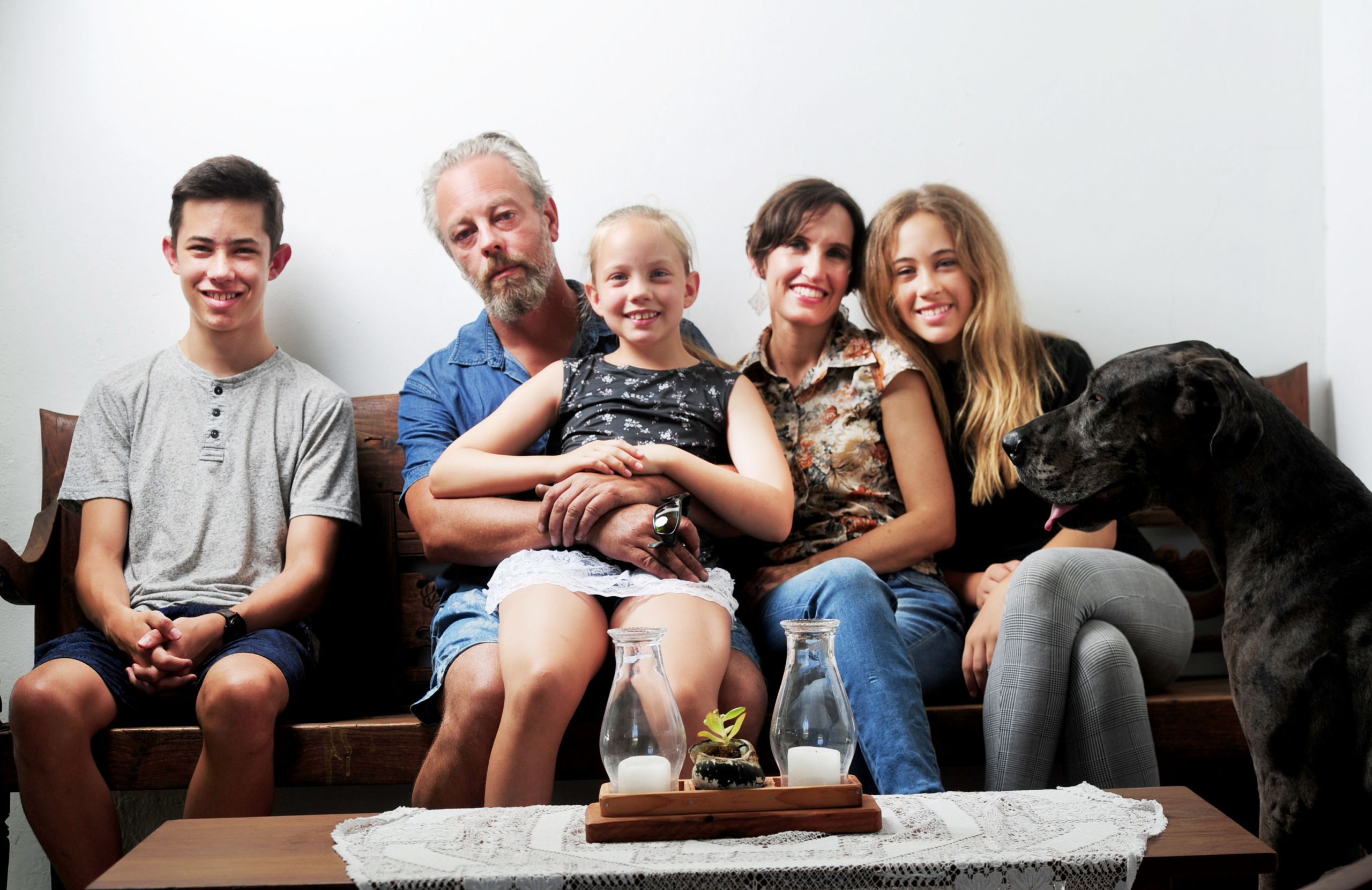
“My daughter applies the principles she learnt during Money Makeover. She made stress balls during the exams and sold them, saving for a year to buy herself a puppy. She had to save to buy everything –the dog, his collar, bed etc.
She even introduced me to Dealz where she got a bed for only R150 compared to the ones in shops that are minimum R250. We just wanted to share what Money Makeover does for our children when we teach them the principles of saving and creating wealth,” says 2020 Money Makeover winner Catheriene.
For 2020 runner-up Nono, her extended family have also reaped the benefits. After being motivated by Nono’s achievements and following her journey, her sister-in-law messaged to say she had just paid her son’s school fees for 2021 in full and benefited from the early-bird discount.
Nono has continued to keep to her financial promises and in November paid off her BMW – more than a year early. The money that she was paying to the car installments is now divided between increasing her bond repayments and starting a university fund for her daughter.
A year into financial freedom – where are they now?
Next week we launch the Absa/City Press Money Makeover Challenge. Maya Fisher-French touches base with last year’s Money Makeover finalists to check if they have embraced their financial freedom or have gone back to their bad habits
The Covid-19 pandemic and the lockdown have taken their toll on our Money Makeover Challenge contestants from last year, with most of them facing a reduction in household income. Fortunately, the work they did last year as part of the six-month money boot camp strengthened their finances and prepared them for the financial shocks.
They had a handle on their budgets and spending, paid off debts and started emergency funds, creating financial resilience. Despite the challenges of the lockdown, their finances remain on track. There may be times when focusing on just staying afloat is the best strategy, but it creates a firm base from which to grow when your circumstances improve.
MISHACK: CASHING IN ON CATTLE
Mishack works in government communication. Sticking to a budget for the first time during the Money Makeover Challenge last year helped Mishack identify his spending pattern: “We would go to the shopping mall to pay accounts and have a meal and do more shopping.”
By paying those accounts online and targeting his debt repayments, Mishack paid off all three of this clothing accounts and R29 000 of credit card debt.
A year later
As a government employee, Mishack has not had a salary increase in two years, so the past year has been tough: “Everything has increased except our salaries – medical aid, petrol, electricity, school and crèche fees.
“I am effectively earning less than what I was earning two years ago. However, the experience gained during the Money Makeover Challenge has helped me to survive.”
With cattle prices increasing after the end of the hard lockdown, Mishack, who is a communal farmer, was able to tap into his livestock investment, selling R80 000 worth of cattle on auction.
“I put it [my cash] to a good use, thanks to the knowledge I gained on the Money Makeover. I renovated my two houses and paid the annual school fees, benefiting from the upfront cash discount.”
He was able to get his cars serviced and even spoil his twin sons with new bicycles.
“The knowledge, experience and discipline acquired during the Money Makeover Challenge has taught me to survive with the little you have and complete certain projects without being in debt. I have increased my safety net. I am still disciplined; I no longer spend impulsively. I plan projects and stick to the budget, and do not lend money to my family and friends using my credit card.”
PETER: STICKING TO THE BUDGET
Peter is in his early forties. Having given up on the large corporate salary to work for himself, the family relied on credit to meet expenses. During the Money Makeover Challenge, the family worked hard on sticking to a budget, reducing their spending by R5 000 a month while settling credit card debt and starting an emergency fund. The family took a knock financially when his wife’s speech therapy practice had to stop due to Covid-19.
A year later
This year, the emergency fund proved invaluable as their car needed major repairs.
“We have not dipped into using the credit card and the continued feedback sessions with our kids about budgeting and the cost of living really help keep us honest too,” says Peter, who was able to increase his contributions to his retirement fund this year.
“While it seems all doom and gloom, we are still in a much better situation than we would have been had we not gotten our finances in order. Paying for repairs hurts, but we had put cash aside in case of an emergency. We don’t need to borrow money or write the car off because we can’t afford repairs.”
BELLAH: KEEPING DEBT UNDER CONTROL
Bellah is an entrepreneur running her own construction company in Pretoria. During the Money Makeover Challenge, she learnt to separate her personal and business finances and pay herself a monthly salary. She paid off R175 000 of debt and built up an emergency fund.
A year later
Bellah’s business was hit hard by the lockdown. However, having paid off most of her debts, Bellah has been able to weather the storm: “I am only left with one Absa loan, but I communicate with the bank, as I have learnt from my Money Makeover journey to speak to my creditors rather than keep quiet.”
Bellah has won two tenders this year that will help her settle her final loan. As a entrepreneur, Bellah also ran some side hustles during the lockdown, buying coat hangers in bulk and making biltong to sell. She also started a garden service, which is now picking up and starting to provide an income for her son.
“Last year was hard, but I am so grateful I had paid off the informal loans with high interest rates. Through the Money Makeover journey, I managed to save, took out life cover to provide for my children and built up an emergency fund that I used during the lockdown when there was no income at all.”
NONO: BUILDING FOR THE FUTURE
Nono works as a TV producer and had recently married when she joined the Money Makeover Challenge. Nono has had an exciting and life-changing year since being named runner-up in the challenge having given birth to her second daughter.
During the challenge, Nono exceeded all her timelines in paying off her debts. She settled her credit card, revolving loan and also set up an emergency fund. On top of all this, she also encouraged her extended family to join her journey.
A year later
Nono continues to keep to her financial promises and paid off her BMW in November – more than a year early. The money she was paying in car instalments is now split between increasing her bond repayments and starting a university fund for her daughter.
“Since paying off the car, the loan and the credit card, my husband and I are concentrating on paying off our home. We also have an emergency fund in place, and we use the R2 000 monthly [savings] towards buying shares on EasyEquities,” says Nono, who has invested R30 000 and already seen a R5 000 return.
“We’ve opened an educational fund for our little one through Absa and we continue to save money for her monthly needs in another account.”
CATHERIEN: KEEPING IT REAL
Catherien is an executive personal assistant, married with three children and the winner of last year’s Money Makeover challenge. By the end of the six-month competition, Catherien and her husband were on the same page financially. They paid off two credit cards and agreed to stick to a household budget.
A year later
“We have felt the reality of the Covid-19 pandemic and the economy,” says Catherien, whose husband’s businesses have been affected by the economic downturn.
“He is trying to stay positive, because we also learnt that being positive about finances has a positive effect. But trust me, it is not always easy.”
Despite the challenges of a lower income and rocketing food and petrol prices, Catherien has remained up to date with their bond and vehicle repayments without taking any payment holidays.
She even managed to put some extra money into their bond, thanks to her side businesses.
Their children are also part of the family’s money decisions and find extra ways to earn an income.
“I have more of a balance in life, but with the higher cost of living, it is not always easy, and yet, we can still smile. We live life to the fullest and appreciate the little things. For us, it’s being able to pay all our monthly debit orders on time, have food on our table and live in our dream home. We are extremely blessed.”
COLEN: REVIEWING HIS PROPERTY PORTFOLIO
Colen is an area manager and married with three children. His focus during the Money Makeover Challenge was to consolidate his finances on his property portfolio made up of several properties, including flat rentals.
Colen discovered that he was not using his money effectively and, by utilising cash sitting idly in his transaction account, he paid off R50 000 of the property debt and improved his cashflow.
A year later
“Because of the Covid-19 pandemic, I’ve lost more students this year. The student [rental] property is not doing well and I need to decide whether I’m going to sell or not,” says Colen, whose added challenge this year is relocating for work due to a restructuring and he had to relocate to a different province.
“I am starting the new position in July and now the challenge is to find myself a small place to stay as I’m not planning to relocate the whole family there. This is actually throwing my plans into disarray as I was planning to buy a one- or two-bedroom apartment and rent it out with the money I got from the sale of my Pretoria North property,” says Colen.
He adds that, despite these challenges, he remains on track and is thankful that he reduced his property debt. “I am still following my plans I created with the help of my financial adviser, as I see that as a transport to my financial freedom.”
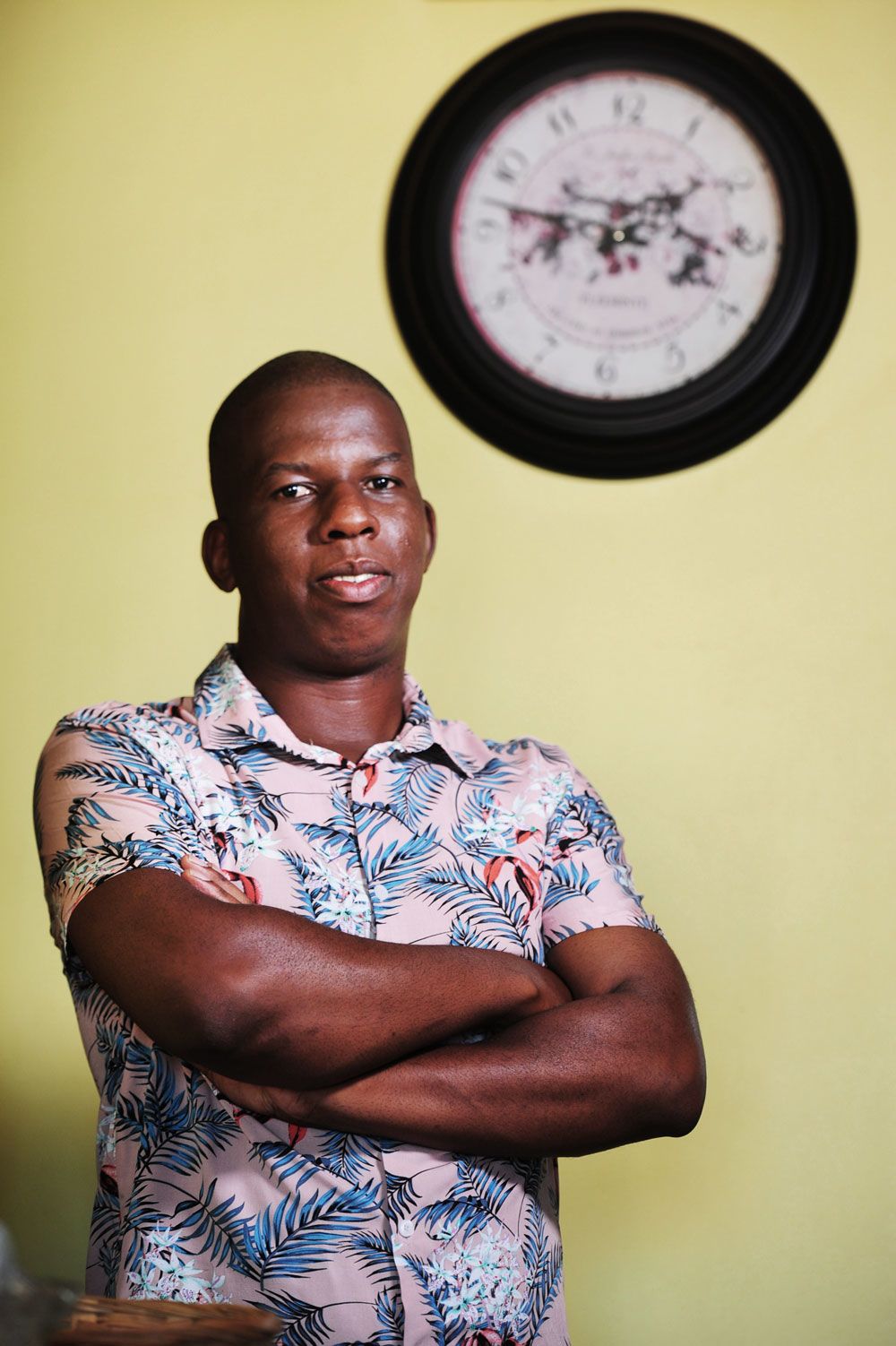
Mishack
Mishack
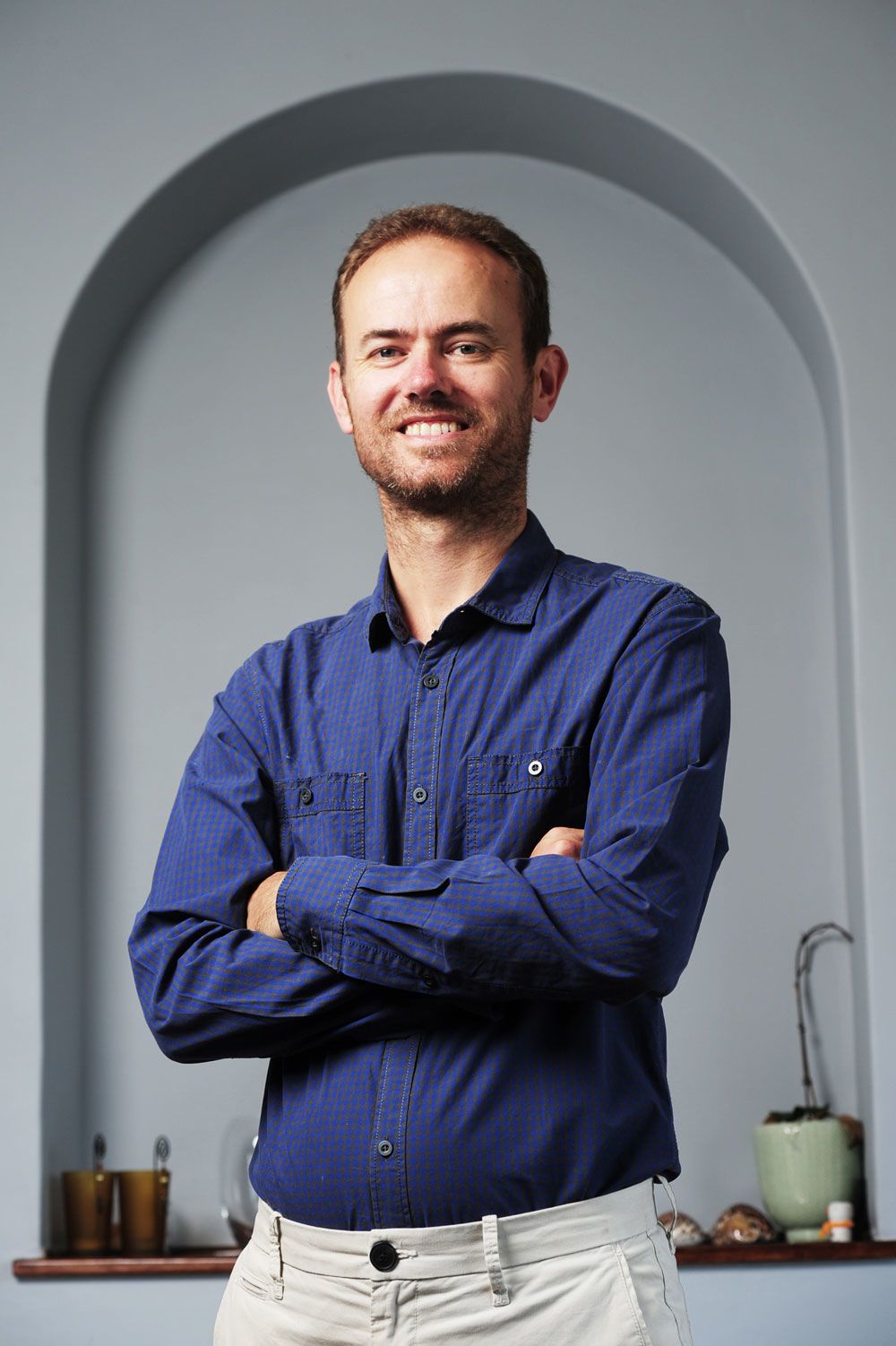
Peter
Peter
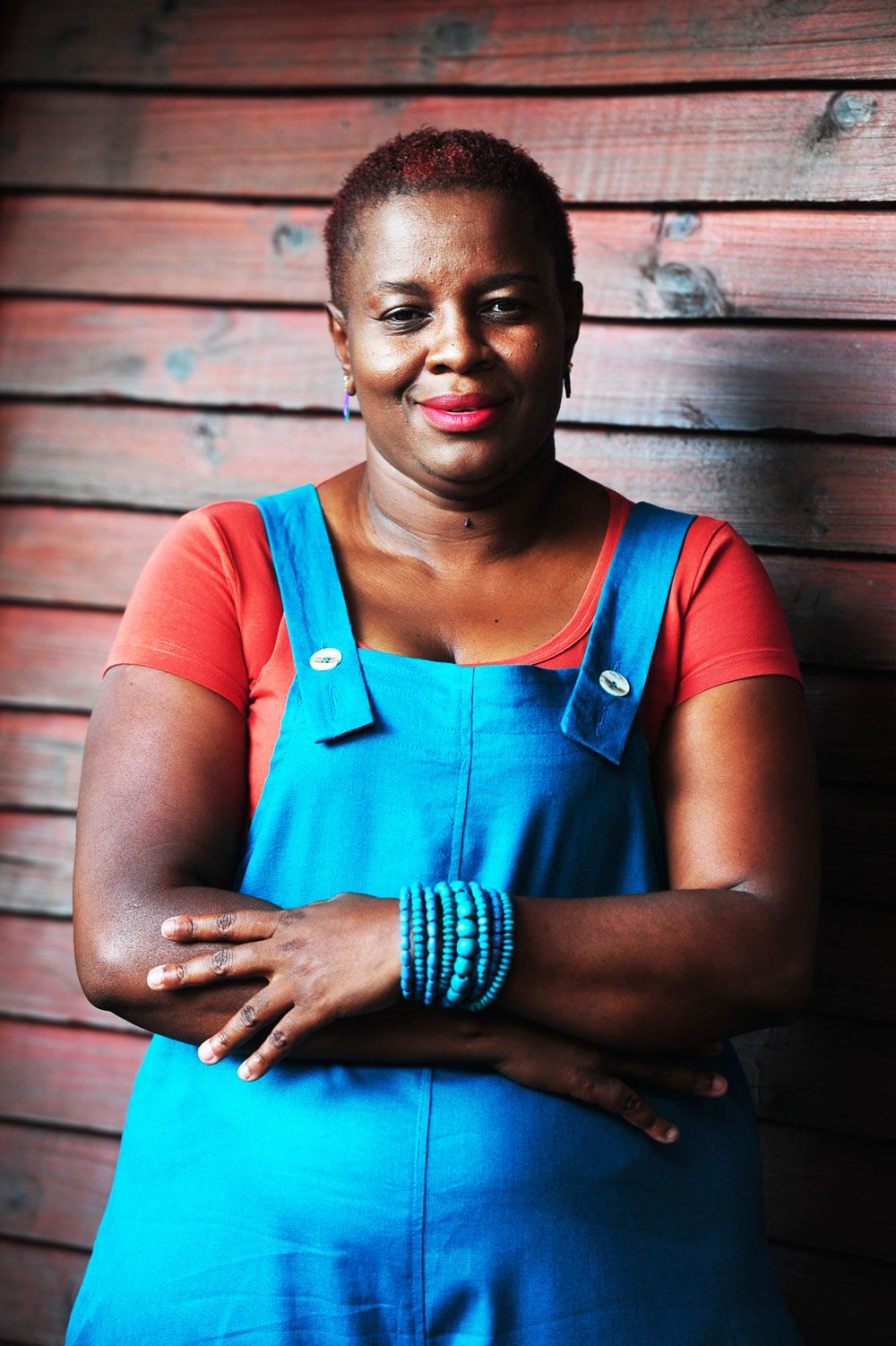
Bellah
Bellah
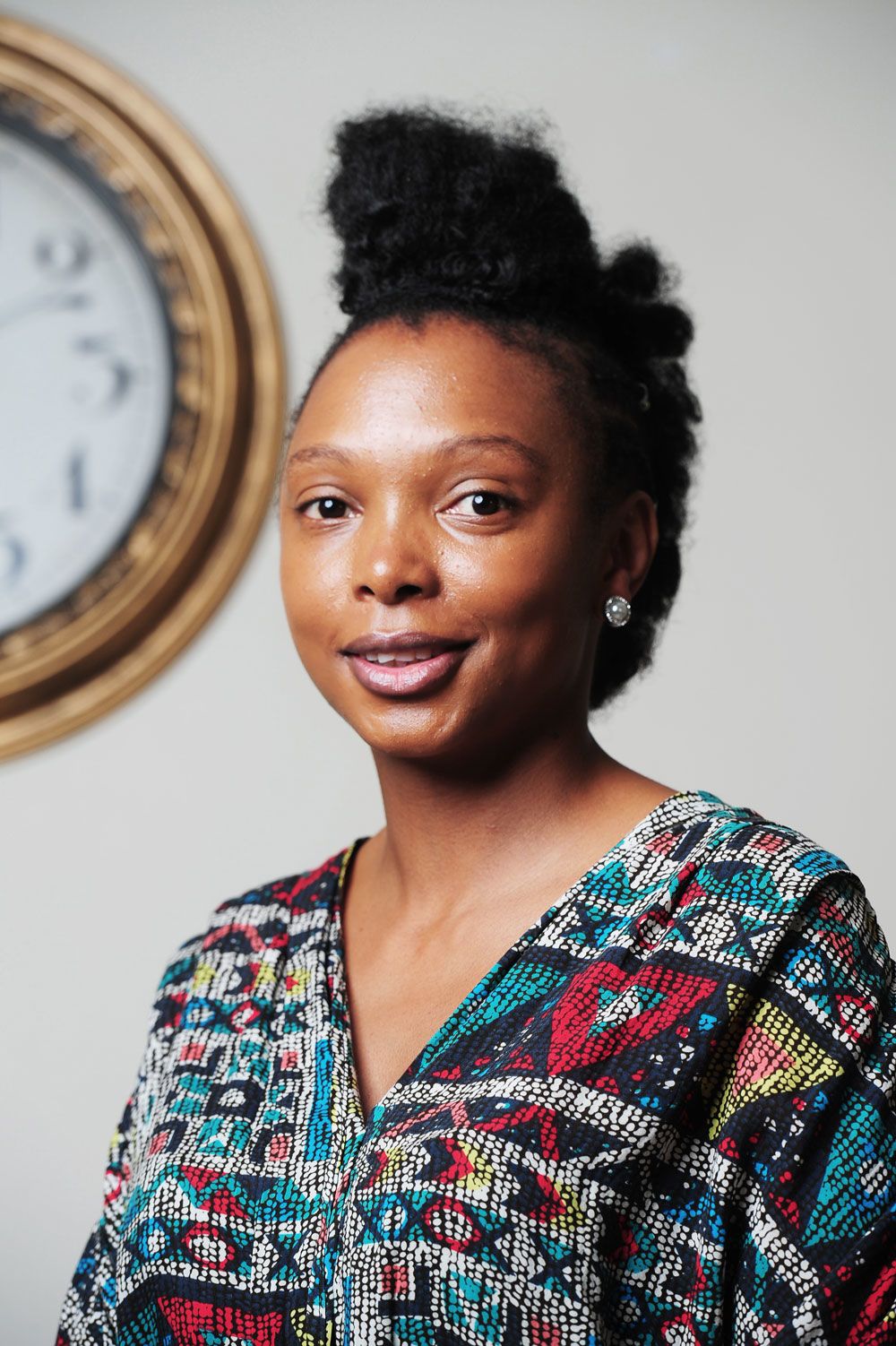
Nono
Nono
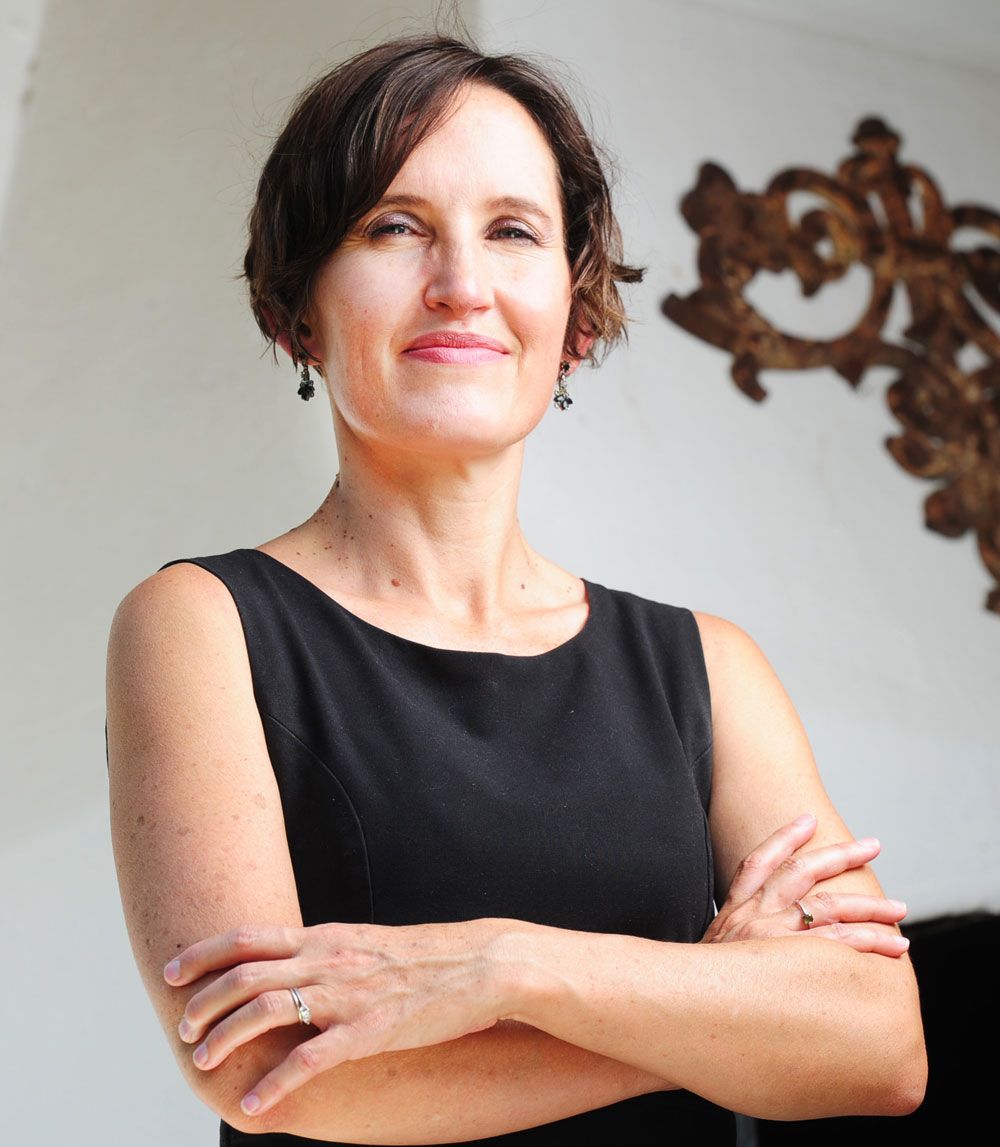
Catherien
Catherien
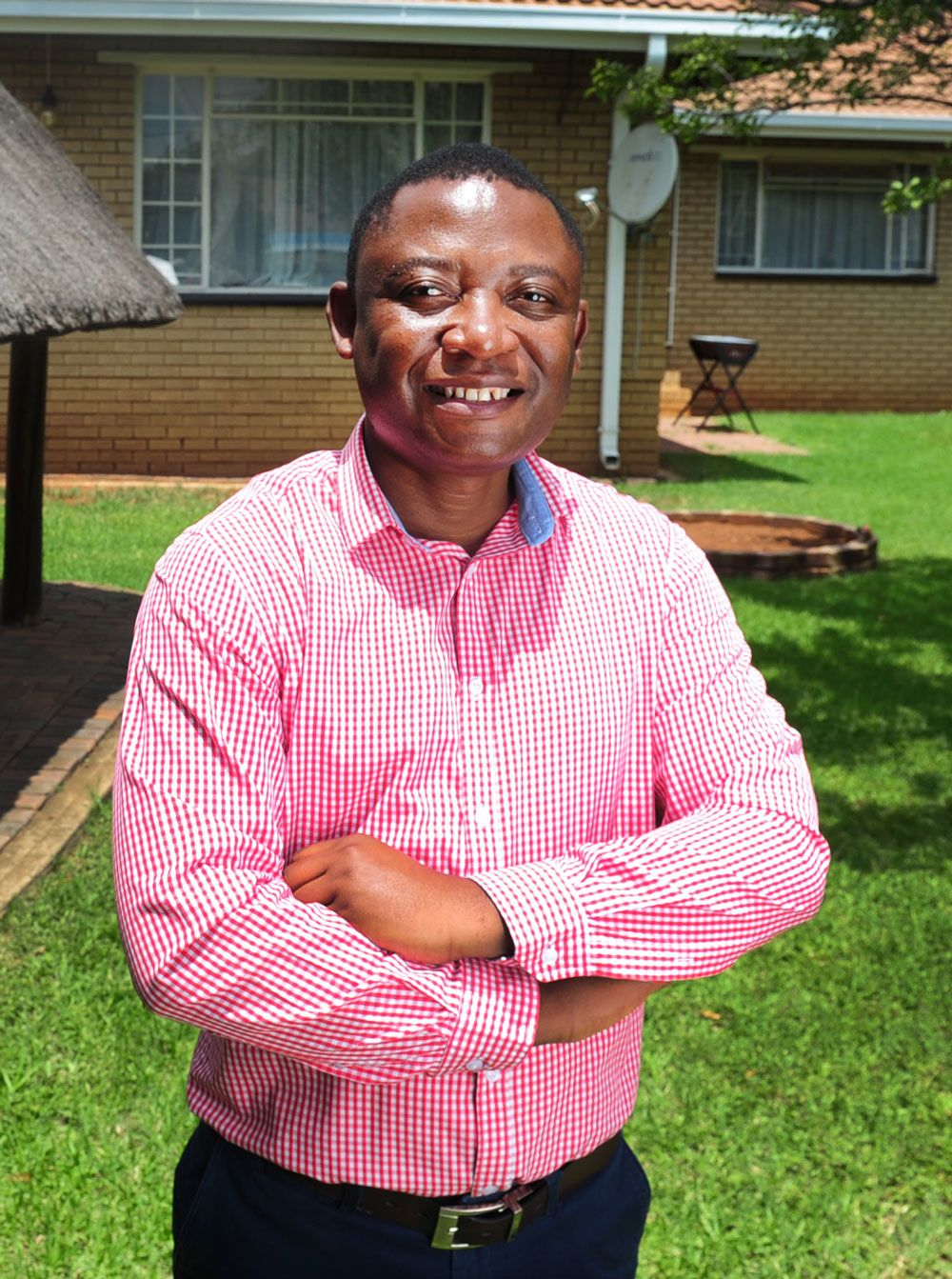
Colen
Colen
Follow Money Makeover Facebook page @CPMoneyMakeover for more Money Tips from our contestants.
Subscribe below for the Money Makeover Newsletter
